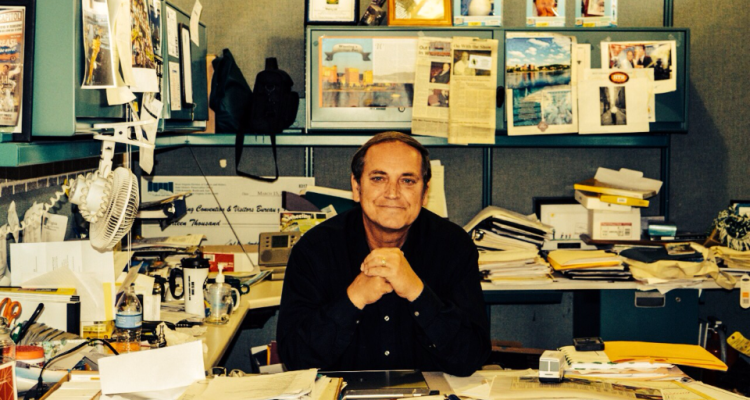By Steve Novotney
Weelunk.com
For a little more than 20 years Frank O’Brien lived every day as a well-known television journalist in the Upper Ohio Valley. He weaseled his way in back in 1985, and then he fought his way out in 2006.
It was an integrity thing. It was a money thing. It was time, for O’Brien anyway, for a different direction.
But change is something he’s grown used to since graduating from Trinity High School in Washington, Pa. O’Brien, who serves as the current executive director of the Wheeling Convention and Visitors Bureau, immediately enlisted in the U.S. Air Force following his commencement and served as a corpsman and then as a psychiatric technician at Wright-Patterson Air Force Base near Dayton, Ohio. He enrolled at Wright State University and started the necessary curriculum because a career in psychiatry appeared appealing.
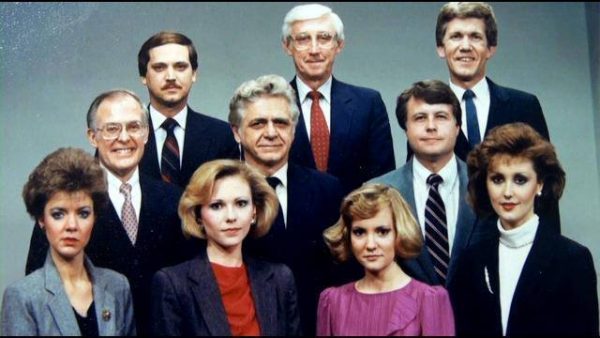
And then one day it suddenly didn’t. Only after a friend said something about his “radio voice” did he realize his work with the mentally ill was having an adverse impact on his own sanity. Instead of helping to improve the problems of others, his own health was suffering.
That’s when utilizing one of God’s gifts, his baritone voice, seemed his best option, so the one-year program at the International Broadcasting School was next for O’Brien. Once he graduated, he returned to his hometown for his first job at WJPA, and then he left for WNBS in nearby Uniontown, Pa. The notoriety was flattering, but the pay was disappointing, so O’Brien decided to reinvent once again by moving to Florida to work with a friend as a recruiter for an ITT Technical school.
O’Brien resigned from WNBS, he and his wife, Gloria, packed their belongings, and then the little Mrs. dropped the bomb that would change his life for the rest of his days. She didn’t want to go to Florida. She refused to leave her family.
And, oh yeah, and she was pregnant with the couple’s first child, Zachary.
O’Brien immediately refocused, returned to broadcasting, and arrived in the Friendly City for employment for the first time in 1984 as a newsman for WZMM. The radio station was located on 16th Street in the same building that still houses WTRF-TV, so he quickly learned the difference in salaries between a news director on radio and a TV personality.
He revamped his resume, produced his audition tape, applied, and then he heard nothing. In fact, it was not until he met the late and legendary news anchor Mark Davis in a nearby bar when he finally would get his first chance in television.
Part time. Weekends only.
During his two decades with WTRF, O’Brien covered all beats as a reporter and appeared as the primetime anchor for several years. He interviewed President Bill Clinton and Michael Jackson. He even had the chance to ride in the Goodyear Blimp.
Then arrived another one of those moments.
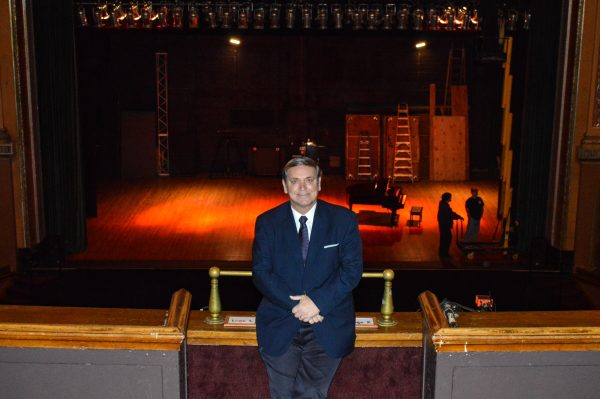
Novotney: After so many years as one of the famous faces in the Upper Ohio Valley, why did you decide to completely leave the media industry?
O’Brien: The reason I decided to get out of television was because I saw what was happening to journalism. It’s become very editorialized, and it seems to be one sided all of the time. We used to have meetings to figure out how we could make a certain story really big before we even knew everything about the story itself. I just thought that was BS.
I guess I lost that integrity that is required to be an honest journalist. And that’s why three years before I became the CVB director, I started looking for other jobs.
Novotney: Was the position with the Wheeling Convention and Visitors Bureau the first you sought?
O’Brien: No, it was the third.
The first one was a job that came available at the Ormet Corp. that involved public relations and government relations. I interviewed with the owner, and a couple of weeks later he had me meet with his wife for lunch at the Fort Henry Club so she could tell me that I didn’t get the job.
Then six months later Ormet went bankrupt, and now it’s completely closed.
Six months after that I interviewed for another job that would have taken me to Washington, D.C., to be a spokesperson for a congressman. That congressman was Bob Ney, and six months after I didn’t get that job, he went to federal prison for corruption.
So there is luck when you don’t get a job sometimes.
Novotney: And then the CVB?
O’Brien: The third one was the charm.
I had to interview with 16 different board members, and each one of them is a leader of our community. Once I got the job, I immediately started training in the areas I needed to so I wasn’t just a TV guy with the CVB. I’m sure there were some people who were upset that the TV guy was hired, so I wanted to become the best director I could be.
Novotney: According to West Virginia Code, the Wheeling CVB is to receive half of the monies collected by all hotels within the borders of Ohio County to use for the recruitment of economic impact. How do you use those funds to accomplish that goal?
O’Brien: It’s really about sales. We are selling a community, and the people who visit us do not care about borders or state lines, so we have procured relationships with the communities outside of Wheeling so we can offer our complete package every chance we get.
The CVB does a lot of things that people have no idea about. One example is going to motor coach shows all over the country. When we are there, it’s like speed dating because we only have seven minutes to meet with these folks who make the decisions about coming to the Wheeling area.
That’s very important because every time you see a motor coach in our area, it represents $15,000 worth of economic impact. That’s a big deal.
Novotney: On April 3, 2009, did your job description completely change thanks to the agency’s $617,000 purchase of the Capitol Theatre from Clear Channel Communications?
O’Brien: It did, but in a very good way.
It’s been an incredible project, and it took significant partnerships to make it happen. And it is having a significant economic impact on our community to the tune of around $4-5 million per year.
It works, and not everyone expected that to be the case at this point in time.
Novotney: Was it difficult to bring those partnerships together although Clear Channel had shuttered the historic theatre because of fire and safety issues?
O’Brien: It was a lot of work. There were a lot of meetings that took place, and the public had no idea because they were at 7 a.m. at Wilson Lodge. The people who attended those gatherings were amazing to me. It showed me how important the theatre was and how important this community is. Architects, the county administrator, tourism leaders, all the Oglebay people, the casino people, general managers, vice presidents, chairpersons, the political people … it was just amazing to me.
At first we tried to get it purchased by a private-public partnership because of the tax credits that were available, but we ran into some issues, and it became very complicated.
That’s when some of the newspaper headlines determined it was going to be a nightmare because it was going to become a money pit, and the city would be on the hook. None of that was true, as we can see today, but it made it very complicated.
At that point it was decided to go the way we ultimately went, and that was with the CVB buying it and taking care of the debt service.
That’s when we went to the bank. Dick Dlesk, the president of Progressive Bank – may he rest in peace – met with me, Denny Magruder, and Hydie Friend. We pitched our plan for more than an hour, and then he asked us when we would need an answer. I told him a couple of weeks.
He then said, “How about now?”
He stood up, offered his hand, and said, “I’ll give you $1.9 million.”
Since that day I have raved about his commitment to this city. He saved the Capitol Theatre.
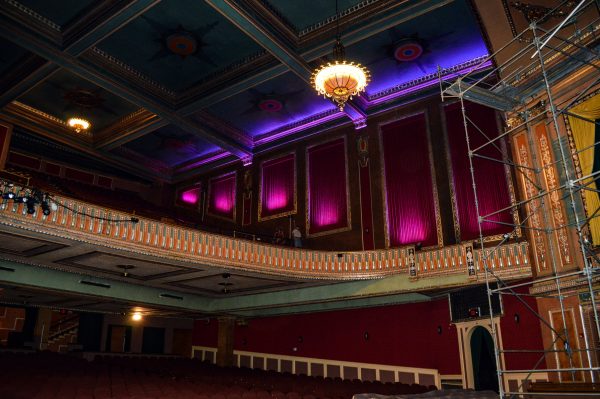
Novotney: The CVB pays the debt service on the Capitol Theatre using dollars collected by Ohio County’s and Wheeling’s hotel/motel tax, but at the time the loan documents were signed, the local hotels were not crowded with employees of the many oil and gas companies. That has since changed, has it not?
O’Brien: We are blessed to have the high occupancy at our local hotels and motels now, but at the time we made this decision, the Marcellus Shale was barely being talked about. The hotel guests have allowed us to manage the debt service and market our area at the same level as before.
Novotney: But serving as the executive director of the Wheeling CVB is about much more than the Capitol Theatre, is it not?
O’Brien: Before I found out about that this position being available, I didn’t even know we had a CVB here in Wheeling, but the revenue wasn’t significant enough to make a big impact. That has since changed, and the first thing I wanted to accomplish was becoming the voice our tourism in Ohio County.
Our primary mission is to market Ohio County as a destination and to get the people who live within a 50-mile radius to come here and stay at least one night in one of our hotels. We are buying advertising to help generate overnight stays in the Wheeling market.
But we don’t control the product. The product has to be delivered by the people of this community, and we have a number of things going for us in this area. We have a great location right along the interstate that is a giant artery to America; we have great tourism drivers like Oglebay, Wheeling Island Casino, and Cabela’s and The Highlands. Those three drivers attract as many as 4 million people to our area.
Novotney: On average, how much does the Wheeling CVB collect from the city’s and county’s hotel/motel tax per year?
O’Brien: The county and the city collect in excess of $2.6 million a year, and we receive half of that amount to continue our mission of attracting more people to Wheeling and Ohio County. Everything we do, from the billboards, newspaper ads, and social-media marketing, is aimed at accomplishing that goal.
But it’s also about the quality of life for the people who live here. Most folks probably do not realize that we distribute as much as $60,000 per year to every fair, festival and event that are held here in the hope that they will expand their marketing to a level where they are bringing people in from out of town, too.
Novotney: Is another factor to your success the collective attitude of the citizens of Wheeling and Ohio County?
O’Brien: It most definitely is, and we make efforts to get everyone on the same page. The negative attitude among some folks who insist on dwelling on the way it used to be in the 1950s and 1960s bothers me because it can never return to that. So we have to accept what we have today, appreciate our history, and think about how to move forward rather than looking back all the time.
And I am more excited now with this buzz and the collection of people who are interested in the future of Wheeling and Ohio County. These people are bringing new ideas to the table, and they have a lot of great ideas.
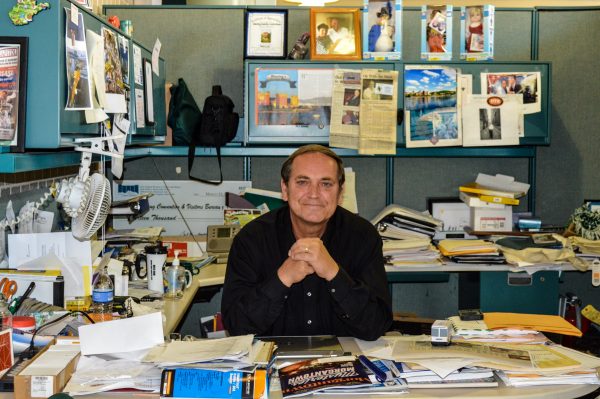
(Many Wheeling folks are contributing to this renaissance, including the Crofts … https://weelunk.com/arts-crofts-wheeling/


